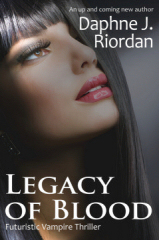Writing the Novel – A Reading Journal
Writing the Novel: From Plot to Print by Lawrence Block
One of our requirements for school is to write five reading journals each semester. Here is a portion of one of this semester’s journals.
As writing instruction books go, this one was very readable. Even when he went over something I’m already familiar with, I still felt engaged rather than bored. The book’s age shows, though, in his many references to putting pages through the typewriter and his suggestion to type the final draft yourself rather than hiring a typist. I wrote my first book long-hand and wrote much of the second on a typewriter, so I’ve been there, but it’s been a couple decades and then some.
Something else that seemed a little dated was the lengths of the books. He regularly talked about writing 200-page novels. Today, most books are longer, many of them much, much longer. It depends on the genre, of course, but even the short category romances are usually around 250.
All that aside, writing is still writing, and most of what he says is as relevant today as it was 30 years ago when the book was written. I found his method for taking apart other people’s novels and studying them very interesting, and I plan to try it out soon. I have structure issues, and I think dissecting successful novels would help me detect the problems with my own. At the same time, I’m dragging my feet, because it sounds like a very tedious process.
Block’s comments about hobbyists (or the lack thereof) really struck a chord. He brought up some things I’ve never thought of – for instance, that people can be amateur singers or actors and no one suggests they’re somehow deficient because they’re doing community theatre rather than Broadway. Yet whenever I tell people I write, the next question is almost invariably, “are you published?â€?, as though the hours and work I put into the novel don’t mean anything if a publisher hasn’t added my book to their list. It doesn’t help that I do want to get published, so this attitude of theirs only serves to remind me that I have yet to reach my goal.
Block also talked about the presumption of many budding authors who assume their first novel will be published. I wrote my first novel at the fairly young age of 12, and at the time, I was thinking not so much of publication as of pleasing my best friends, who would pass around pages of my book at lunch every day and beg me to write more. Who cared about publication when I already had adoring fans? But his point is accurate, especially considering how many first-time novelists are untrained. Would an untrained actor expect to get the lead in a major show? Yet first-time novelists assume they will get published?
In several different places, he talked about the way he developed different characters or plots, and I found those very interesting. For instance, when he talked about creating Matt Scudder, and reaching a point where he realized the character was interesting but that Block couldn’t identify with him very well. He felt Matt Scudder – as he was then – was not a character he could write about convincingly. So he changed the character in a few key ways until he was someone Block could identify with and write about. It reminds me a little bit of Max, the main character in one of my works-in-progress (which is currently on the shelf). Max is an angry young man, and I have trouble getting into his head, because I’m not an angry person. I rarely get angry. After reading about Block’s experience with Matt Scudder, I wonder if I could change Max in some way to make him a little easier for me to identify with.
I laughed when he talked about authors getting tired of series characters – of Agatha Christie wishing she could kill off Hercule Poirot. It’s one of the things that concerns me a little, actually. I read a lot of series, and feel drawn to write a series, and yet I also worry that I’ll get sick of it after a few books. Especially because I do tend to get bored with things in general. So a question I’m struggling with is whether to write a series in spite of possible boredom down the road or stick to single titles and enjoy the variety.
I liked what he said about using what you know. Because I started writing fantasy at a young age, I’ve always struggled against the “write what you know� adage. As Block points out, if we truly wrote only what we know, fantasy and science fiction wouldn’t exist at all. Mysteries would be written only by people who are detectives themselves, and most books would be quite boring. His ideas about “using what you know� are a different thing altogether, and allow the author to turn a generic forest in their backyard into a mythical land.
In summary, I found this book thoroughly readable and enjoyable. I gained a few insights into the writing life and got a good idea of another author’s methods.
